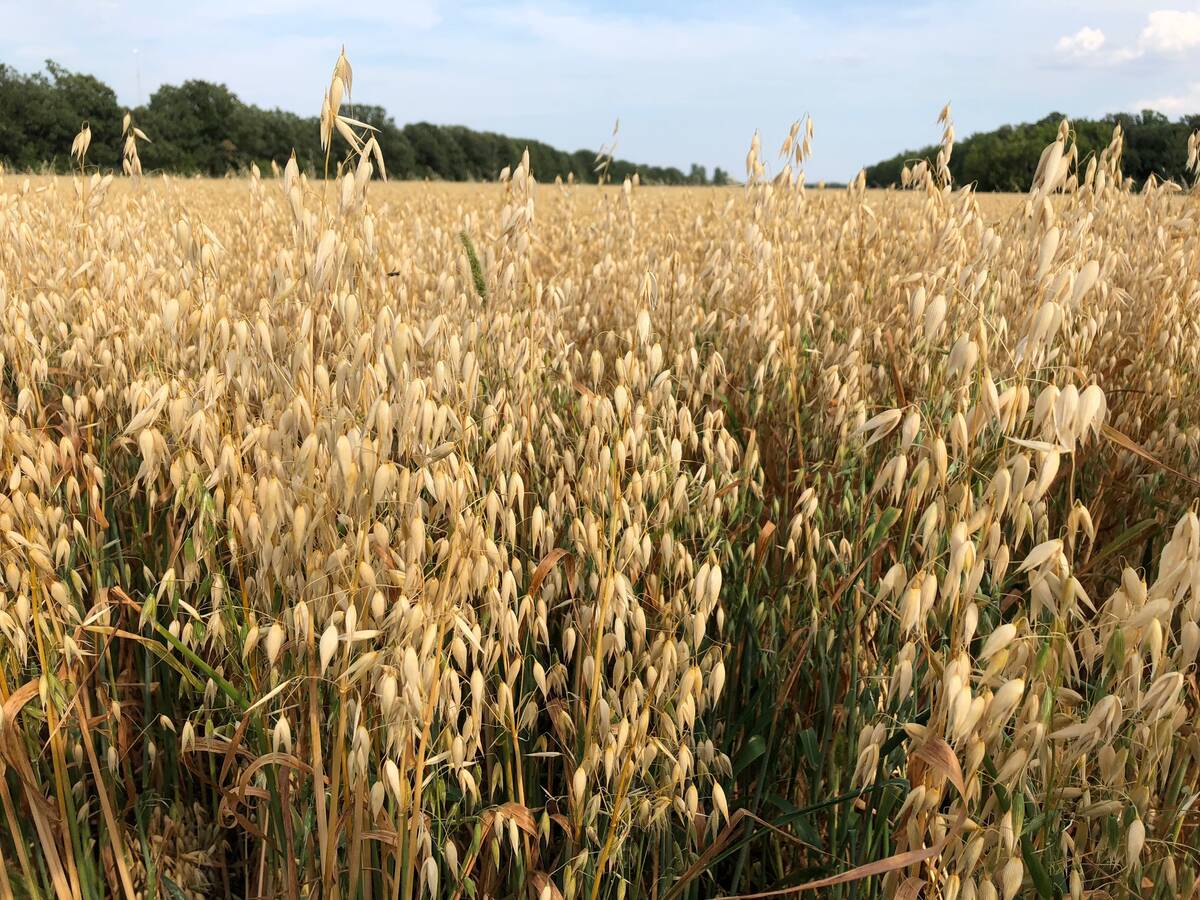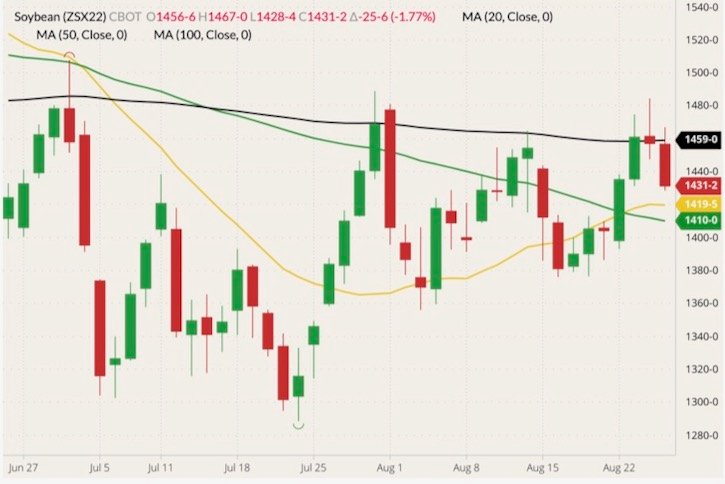Chicago | Reuters — Chicago Board of Trade soybeans, wheat and corn futures fell on Thursday on a profit-taking setback after rallying earlier in the week, traders said.
“We are just running into a bit of technical resistance across the board,” said Dan O’Bryan, a risk management specialist and broker at Top Third StoneX. “You have got to feed the bull everyday.”
The losses in corn, which had posted gains in the six previous sessions and hit the highest in nearly two months on Wednesday, were limited by concerns about potential harvest shortfalls in the U.S. Midwest.
Read Also

Big oat crop in 2025/26 pointing to less acres next year
Oat acres in Canada are likely to recede this spring with cash prices to remain low, said Scott Shiels, grain procurement manager for Grain Millers Canada in Yorkton, Sask.
Corn yield prospects in western Iowa are lower than last year, scouts on an annual tour of top U.S. producing states found on Wednesday. Illinois corn yield prospects are also lower than last year but above the three-year average.
Chicago Board of Trade November soybean futures settled down 25-3/4 cents at $14.31-1/4 a bushel (all figures US$).
“We got a decent sell off, aided and abetted by the market running headlong into chart resistance,” Charlie Sernatinger, global head of grain futures at ED+F Man Capital, said in a note to clients.
CBOT December corn dropped 7-1/4 cents to $6.50 a bushel.
Bumper U.S. crops are needed to offset low global grain supplies, but extreme heat and widespread drought in parts of the Midwest have hampered fields and a string of troubled crop harvests worldwide are pointing to multiple years of tight supplies and high food costs.
CBOT December soft red winter wheat was 24-1/4 cents lower at $7.89 a bushel, with concerns about global demand adding pressure.
Egypt, one of the world’s largest wheat importers, is believed to have made no purchase of imported wheat in talks with trading houses on Wednesday, traders said. The General Authority for Supply Commodities considered prices offered as too high, they said.
— Mark Weinraub is a Reuters commodities correspondent in Chicago; additional reporting by Rajendra Jadhav in Mumbai and Sybille de La Hamaide in Paris.














